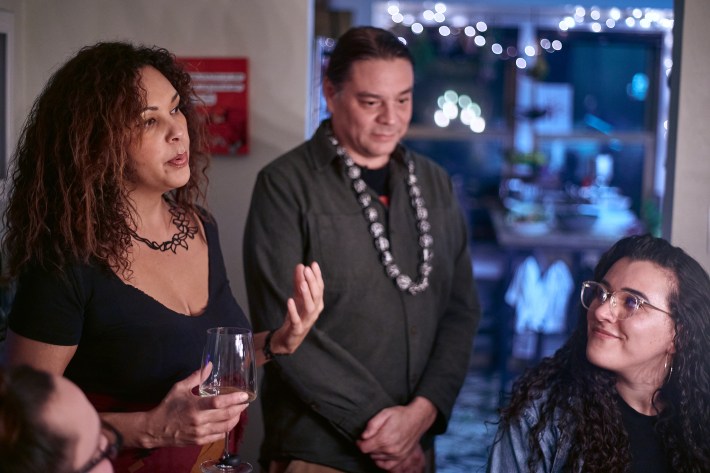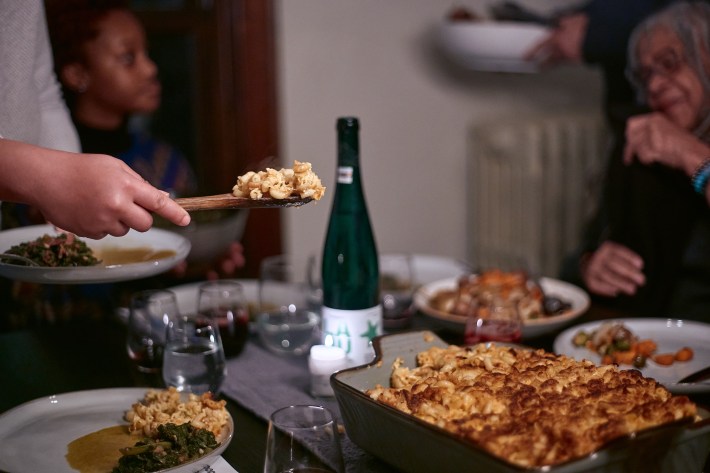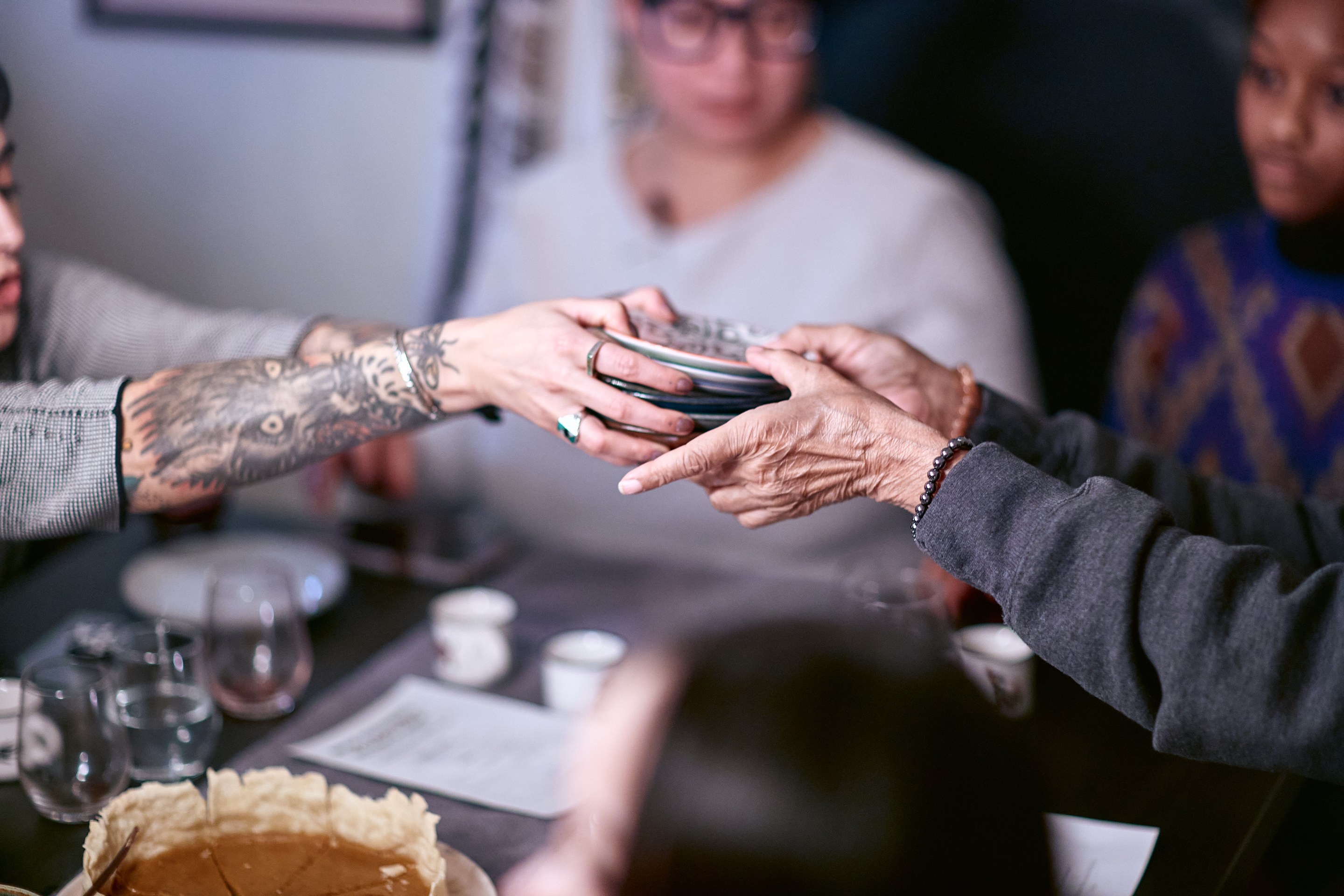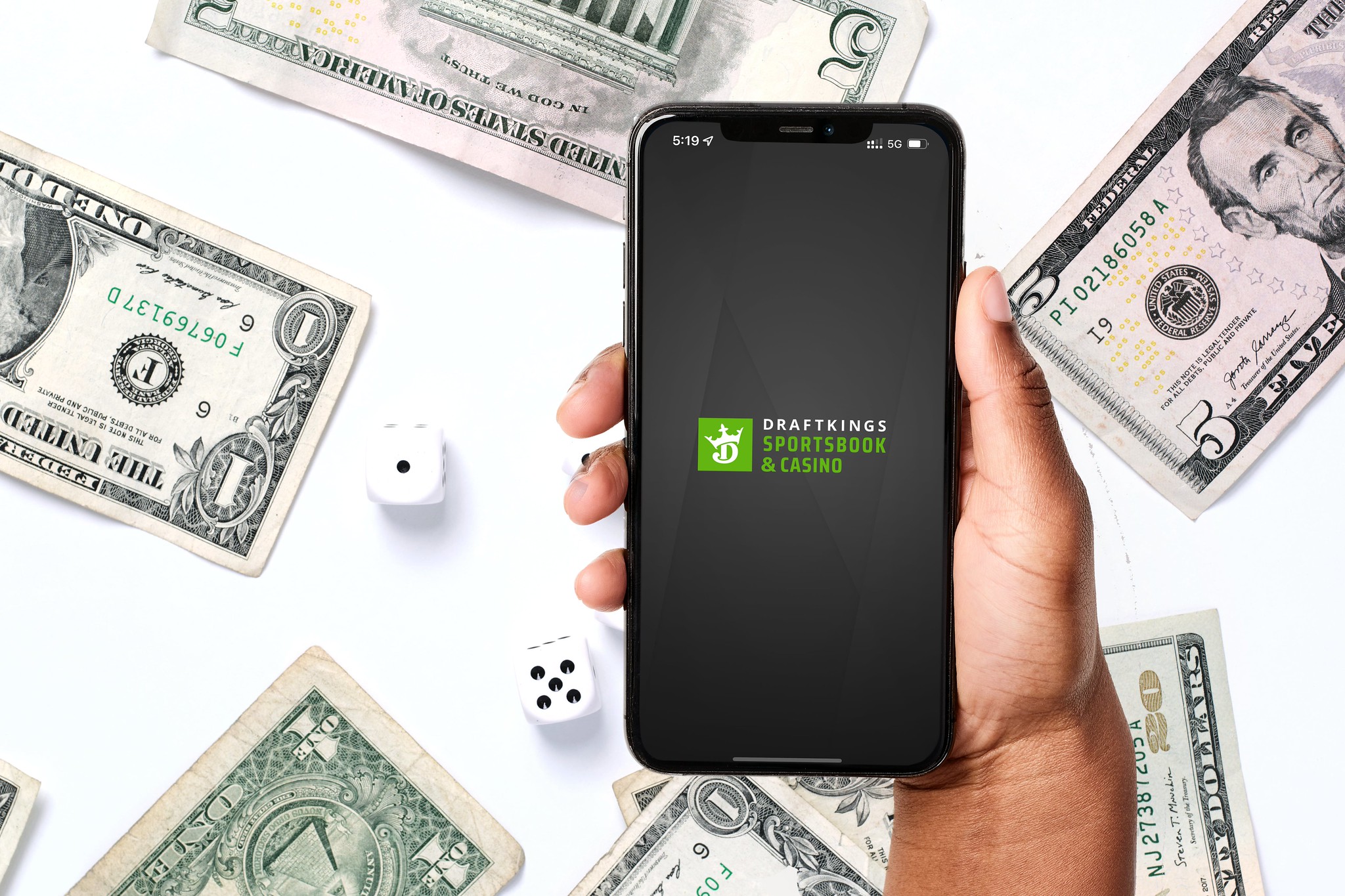Food is one of the most powerful tools we have for forging connections.
So much of our cultural identities are tied to the meals made in our families’ kitchens, especially for those with mixed-race backgrounds or who are divorced from their roots. Food can be a launching point for reconnection, or it can build a bridge that leads toward a deeper understanding between those with different backgrounds.
Few know this better than mixed race Black food writer and chef Mecca Bos and her partner, James Beard award-winning Indigenous chef and co-owner of Owamni, Sean Sherman. Together, they’ve partnered to create the BIPOC Foodways Alliance, a dinner series and storytelling project focused on dismantling white supremacy and highlighting the untold stories within marginalized communities.
While all of us hold varying degrees of privilege and power, white supremacy is a particularly slippery and insidious force. It’s not all burning crosses on lawns and slurs. It’s also whose stories are told and valued, whose food is the baseline for reference, and who is given the authority to be an “expert” on a subject, especially food. People know the Anthony Bourdains, the Jonathan Golds, and the Andrew Zimmerns, but do they also know the Soleil Hos, the Michael Twitties, and the Marisel Salizars? When the greater food world is overwhelmingly white, to whom do those of us who are not look towards to see a version of ourselves?

The Twin Cities are ripe with Black, Indigenous, and People of Color (BIPOC) chefs that get attention and win awards, but what about the people who don’t have a restaurant? This is where BIPOC Foodways Alliance shines; it seeks to create space for and shine a spotlight on the unseen and important cultural and food traditions.
In a statement, Bos says she and Sherman asked, “Why silo BIPOC communities? Let’s bring all communities of color, and white people alike, together. We all have a common enemy in white supremacy, and when we come together, white supremacy loses.”
The BIPOC Foodways Alliance and BIPOC Foodways Table will curate and preserve food stories from these communities, not only here in the Twin Cities but beyond, prioritizing underrepresented stories from overlooked groups. “It is my firm belief that the people who are most likely to hold culinary knowledge and wisdom are women of color, elders, and immigrant communities,” Bos continues. “These individuals are also the ones that mainstream food media has historically marginalized or ignored.”
I had the honor of attending the first BIPOC Foodways Table at the end of January, where we joined guest hosts writer and educator Carolyn Holbrook and her communications expert and foodie niece, Tess Lee. The pair presented their family’s decadent baked macaroni and cheese recipe, along with a soul food meal of juicy roasted chicken and veggies, family recipe collard greens flecked with smoky meat, and cornbread, with sweet potato pie for dessert.
Around the table were BIPOC creatives and white allies, and the discussion flowed freely as we talked about food, culture, and lived experience, both shared and separate. Being in that room felt so healing, and we spoke openly about family recipes, and about how the best ones come together not from what has been written down, but what was felt out, tasted, and measured by hand until they looked, smelled, and tasted correct by the preparer. Part of the BIPOC Foodways project is documenting that process. Over time, and through colonialism and forced assimilation, some BIPOC food traditions and recipes are lost. Bos and Sherman strive to carve out a space for these stories and recipes by recording them on film, writing about them, and hosting meals to highlight them. When they are documented and celebrated, they are harder to lose—and with BIPOC Foodways Alliance Table, they’re not going down without a fight.

Another piece of the BIPOC Foodways Table that is especially healing is the focus on bringing marginalized communities together. For a multitude of reasons, cultural and ethnic communities may sometimes have a habit of siloing information. Although this may come from a place of cultural preservation or protection, it does not serve us to separate ourselves. Again, we return to the main goal of dismantling white supremacy through food—and as with any movement, together we are stronger. This mission is for white allies, too, especially when it comes time to leverage privilege to make change, and a great place for that is at BIPOC Foodways Alliance fundraisers.
The first fundraiser to keep this project moving was at the end of February. Under the twinkling lights within the walls of The Glass House, no stones were thrown other than at a history of white supremacy in the food industry. In her opening comments, Mecca remarked on one of the thoughts that seeded her idea for the BIPOC Foodways Alliance and it was that she didn’t see a lot of people in kitchens who looked like her, and it’s sure as hell not because Black women can’t cook. Together, she and Sean spoke about their travel plans to create more connections with other like-minded BIPOC chefs and to spread their mission across the globe. They also announced their intention to make BIPOC Foodways Alliance a 501c3 by the end of the year, having just filed the paperwork with the generous assistance of local law firm Faegre Drinker.
Attendees toasted this news with BIPOC-curated drinks, sampled food by Sherman, and shimmied to living legend Cornbread Harris and a set led by DJ SciFi. The mood was effervescent and joyful, and I watched as the goal of BIPOC Food Alliance came to life before our eyes that night, as people from all backgrounds mingled and celebrated. Already, the nonprofit is proving it’s possible to foster cross-cultural connections when we are gathered in a united effort to create a more equitable food community.
In the meantime, Bos and Sherman have more BIPOC Food Alliance Tables and fundraisers in the works, with more opportunities in the future to support their mission in the future. Get on board and help shape the future of our food scene; there's info on their website, on Instagram, and on Facebook to keep you updated on future events, stories, and more.






